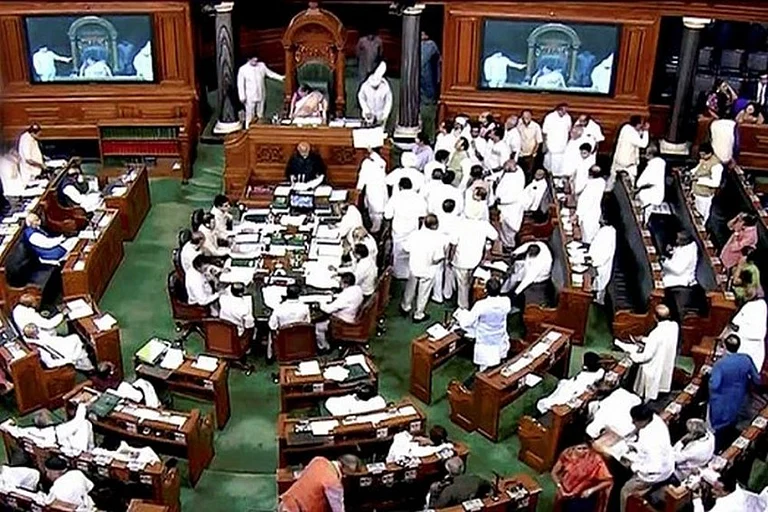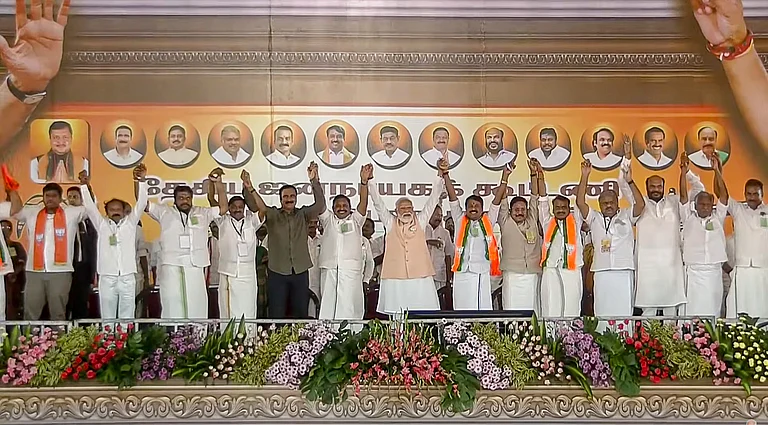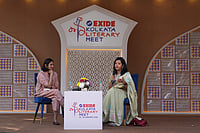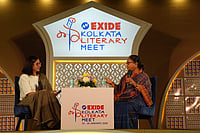At a weekly market in Sonari Gaon, a densely-populated village 10 km south of the Brahmaputra River in Nagaon district of central Assam in eastern India, Rashidul Alam remains unsure of his party’s electoral fortunes. A grassroots worker of Badruddin Ajmal’s All India United Democratic Front (AIUDF), Alam senses a wind of change that can adversely impact his party.
“As the Bharatiya Janata Party (BJP) has divided voters on communal lines, some Muslims may opt for the Congress simply because they are the bigger anti-BJP party,” says Alam.
In the 2021 assembly elections, the AIUDF’s Aminul Islam recorded a hat-trick, winning the Dhing seat, of which Sonari Gaon is a part. Islam is now the AIUDF candidate for Nagaon Lok Sabha seat. But Alam is unsure if Islam can pull as many votes in Dhing—one of the eight assembly segments that make up the Nagaon Lok Sabha seat—as he did three years ago.
Delimitation has turned Nagaon (Nowgong) into a Muslim-majority constituency from a Hindu-majority one. Islam is the son of the late Mufti Khairul Islam, one of Assam’s foremost Islamic leaders. Even though the Congress candidate, three-time MP Pradyut Bordoloi, is a Hindu, the Congress is hoping to get the overwhelming majority of Muslim votes in Nagaon.
“The Congress’ campaign targeting Ajmal saab as the BJP’s ‘B-team’ has resonated with some Bengali Muslims for some reason,” says Alam. He adds that the party is leaving no stone unturned to dispel this misconception.
Eighteen years ago, Ajmal emerged as a key player in Assam politics. His newly-launched party, Assam United Democratic Front (AUDF), won 10 seats and came second in another 11 in the 2006 assembly elections, securing a nine per cent vote share. Its rise weakened the Congress’ support base among the Bengali-speaking Muslims of southern and western Assam.
“At present, the only agenda of the Muslims is to stop the BJP’s juggernaut. That’s why many Muslims in Assam feel that the Congress is the only alternative that can fight the BJP.”
In the 2009 Lok Sabha elections, Ajmal breached the Congress bastion of the Dhubri Lok Sabha seat. By 2014, his party, now rechristened as AIUDF, became an even bigger force, winning the Muslim-dominated Dhubri, Barpeta and Karimganj Lok Sabha seats. In 2019, the Congress wrested Barpeta and the BJP Karimganj from them, but the AIUDF won 16 of the state’s 126 seats in 2021.
Now, the 68-year-old is fighting a battle for political survival as Bengali Muslims look to favour the Congress. Nurul Haque, a high school teacher in Chagolia near the Assam-West Bengal border that comes under the Dhubri Lok Sabha seat, says that Ajmal himself is facing his toughest electoral challenge in Dhubri, which he has won since 2009.
“A majority of the Bengali-speaking Muslims seem to have come to an understanding that Ajmal’s religion-based politics is helping the BJP’s religion-based politics and communal polarisation. They are keen to bring politics out of such religious influence. This could go against the AIUDF,” says Haque.
Ajmal wears many hats—a perfume baron, a Maulana or Islamic theologian and a philanthropist. He has a support base among his religious followers and the beneficiaries of his social work. His family’s Ajmal Foundation runs a network of 24 education institutes in rural areas, including BEd colleges and law colleges. His Ajmal Super 40, an integrated coaching programme for NEET, JEE, Olympiad and Assam state school board exams, has its own popularity. His foundation offers free coaching for civil services exams as well as scholarships.
In a paper published in 2019, political scientist Manoj Kumar Nath shows that Muslims in Assam have never voted for a single party en bloc. Even during the years when the Congress dominated the state, from 1952 to 1972, a significant number of independent and opposition party candidates won from Muslim-dominated constituencies in each election.
However, the consistent Hindu polarisation, which the BJP has orchestrated in Assam since coming to power in 2016, has prompted many Muslims, especially the Bengali-speaking ones, to consider backing one party. “Muslims in Assam vote for peace and security in general. At present, the only agenda of the Muslims is to stop the BJP’s juggernaut. That’s why many Muslims in Assam feel that the Congress is the only alternative that can fight the BJP,” says a Guwahati-based journalist who does not wish to be named.
The charge of being ‘BJP’s B-team’ is haunting Ajmal’s party not only because of the Congress’ campaign against him, but also because several of the Congress’ allies, upper-Assam-based regional parties like the Assam Jatiya Parishad and the Raijor Dal, are also accusing Ajmal of the same.
Guwahati-based poet-columnist Hafiz Ahmed points out that the AIUDF, in its initial days, looked to take all marginalised sections along—Muslims, tribals and Bengali Hindus. Several of its MLAs were Hindus or tribals and of the three MPs in 2014, one was a Hindu.
“However, after 2014, the AIUDF became a Muslim party. It only invoked religion. The common Muslims have now seen its flip side. They respond to the BJP’s communal rhetoric with their own communal rhetoric. This enables the BJP’s mission. It looks like many Bengali Muslims will turn away from Ajmal in this election,” says Ahmed.
The atmosphere in Karimganj, another Muslim-majority Lok Sabha seat, appears similar to that of Nagaon and Dhubri, say many civil society members belonging to the Bengali-Muslim community.
Many Muslims point out how in the 2021 Assam elections, AIUDF leaders’ comment that the new government will be run by those wearing lungi, skull caps and beards—a clear identification of Bengali-speaking Muslims—helped the BJP polarise Assam’s Hindus.
Muslims make up over one-third of Assam’s population and about nine-tenth of them are Bengali-speaking Muslims having their roots in Bangladesh. In 2005, a citizenship scare spread among Bengalis of Bangladesh origin after the Supreme Court of India struck down the Illegal Migrants (Determination by Tribunal) Act, which allegedly offered a protective shield to suspected illegal immigrants. Ajmal, who then headed the Assam chapter of Jamiat Ulama-i-Hind, used the opportunity to launch the AIUDF. Now, nearly two decades later, the scare over the National Register of Citizens (NRC) may not come to Ajmal’s aid.
Whether symbolic or not, in this crucial battle, Ajmal is missing one of his magic weapons—the “blessed water” that many of his followers believe has a healing capacity. In Ajmal’s rallies, followers used to turn up with bottles and containers, which would be placed on the dais. Ajmal would bless the water in a few bottles and the water from them would be sprinkled in the bottles and containers his followers had brought.
But this scene at his rallies has vanished today as the Assam government enacted the Assam Healing (Prevention of Evil) Practices Act, 2024, and Chief Minister Himanta Biswa Sarma threatened to use it on Ajmal should he continue with the practice in electoral rallies. Whether this takes the magic out of Ajmal’s campaign remains to be seen.
MORE FROM THIS ISSUE
Snigdhendu Bhattacharya in Assam
(This first appeared in the print as 'Minority Report')


































